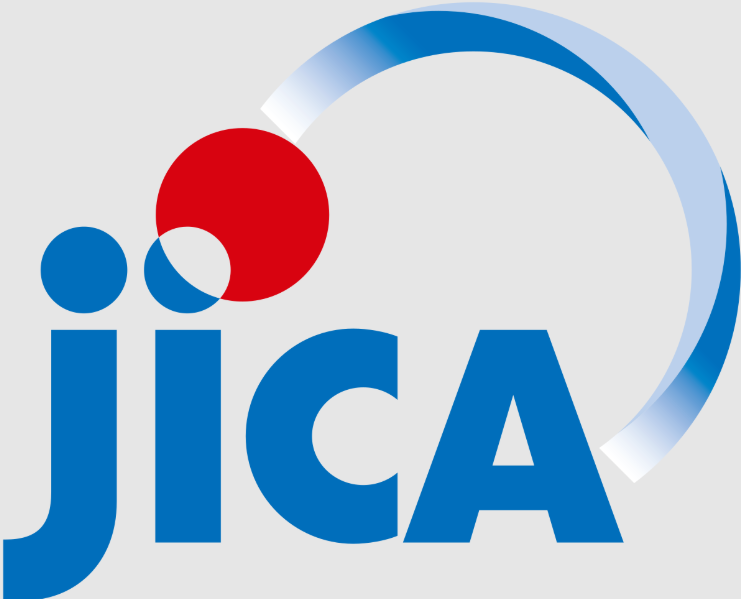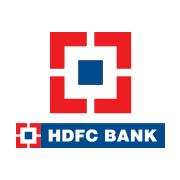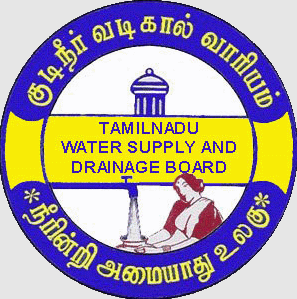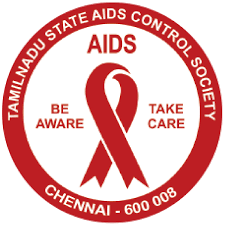Overview of NIWAD
The National Integrated Welfare and Development Trust (NIWAD) is a non-profit voluntary agency registered under the Indian Trust Act in 2005. The Chief Functionary, a woman with an M.Sc. in Extension Education and an M.Phil. in Sociology, demonstrated her commitment to social change through three years of active involvement in community development services in a village during her research studies. Inspired by these experiences, she dedicated her life to serving marginalized communities. Today, NIWAD is guided by a committed and high-profile Board of Directors.
For the first time, NIWAD has embarked on the preparation of a comprehensive five-year strategic plan. To ensure a participatory approach, a subcommittee was formed to lead specific tasks and planning exercises. With the guidance of the DHWANI Foundation, the organization revisited its mission, vision, and values, examined key milestones, and identified impact gaps among target groups. This process also created space to re-engage stakeholders—including communities, donors, government officials, Board Trustees, and staff—recharging their collective energy and motivating them to envision NIWAD’s future direction for the next five years.
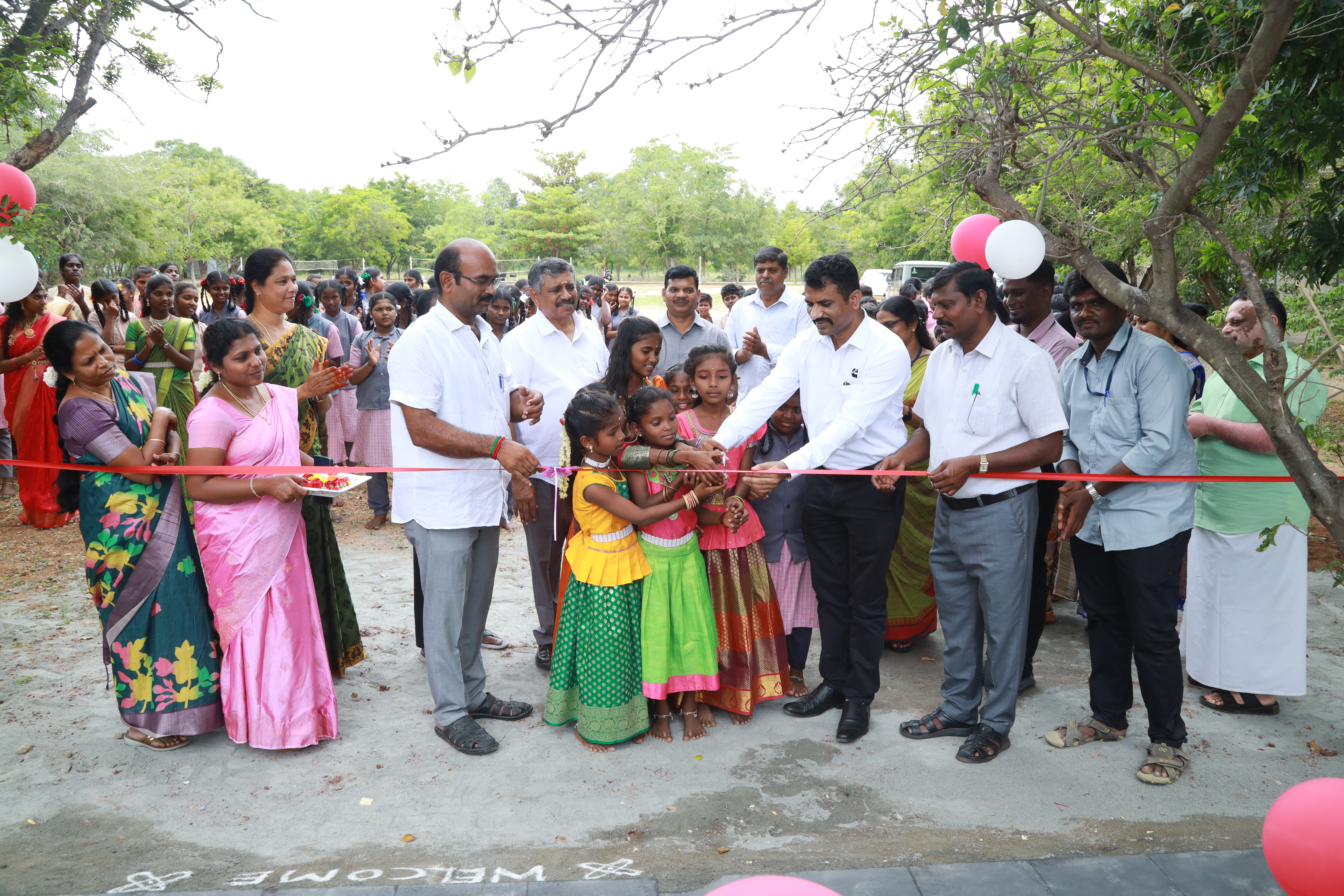
Following
the “Visioning Exercise for a 5-Year Strategic Plan” methodology, NIWAD
facilitated a highly participatory process where stakeholders actively
contributed to shaping the organization’s most desirable future. This inclusive
exercise resulted in the development of clear goals, sub-goals, strategies, and
major programs to guide NIWAD’s long-term growth.
Guided
by this vision, NIWAD has implemented impactful programs in the fields of
livelihoods, skill development, and environmental sustainability. Over the
years, the organization has reached more than 15,000 small and marginal
farmers, tribal communities, unemployed youth, and other vulnerable groups
across seven blocks in and around Salem District.
A
significant focus of NIWAD’s work is with tribal communities in Salem, who
constitute nearly 27% of the population across the five hill ranges of
Periyakalrayan, Chinnakalrayan, Pachamalai, Aranoothumalai, and Vellimalai.
These communities face serious livelihood challenges, with over 80 families
migrating annually from Pachamalai Reserve Forest to Salem town in search of
employment. Furthermore, 26% of dairy-dependent families experience loss of
regular income due to inadequate agricultural and livelihood technologies.
In
response to these challenges, NIWAD implements diverse and integrated programs.
Agriculture and Allied Activities include the promotion of Farmer Producer
Organizations (FPOs), convergence with government departments for natural
resource management, and technical support to strengthen agricultural
productivity. Environment and Forest Programmes are implemented through
initiatives such as the Tamil Nadu Biodiversity Greening Project (TBGP),
afforestation and eco-development projects, preparation of Detailed Project
Reports (DPRs), construction of water storage structures, and promotion of
social enterprises for forest-dependent families. Farm and Off-Farm Livelihoods
are advanced through entrepreneurship programs that encourage transitions from
traditional to value-added businesses, such as handloom products, millet-based
value chains, dairy and goat rearing, agroforestry, and agricultural retail
outlets. These efforts are further reinforced by forward and backward linkages,
integration with MSME networks, and access to marketing platforms including
TRIFED, e-NAM, ONGC, IndiaMART, local exhibitions, and national-level trade
fairs.
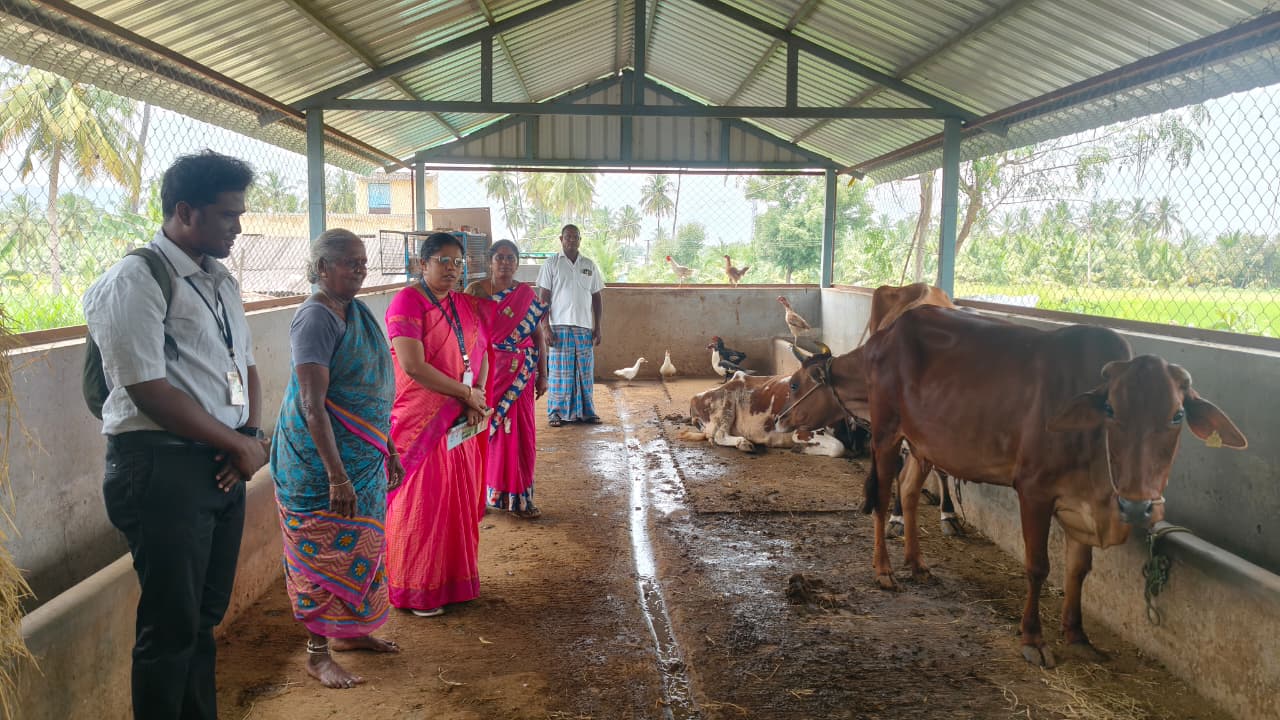
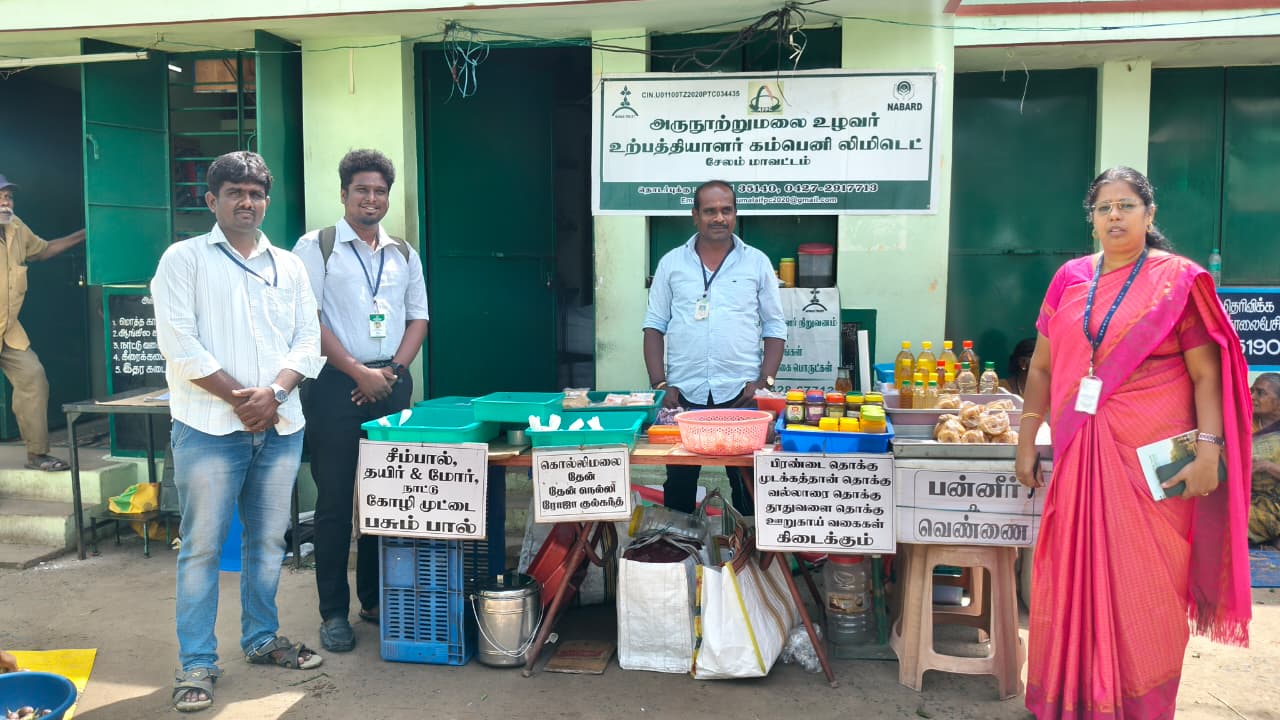
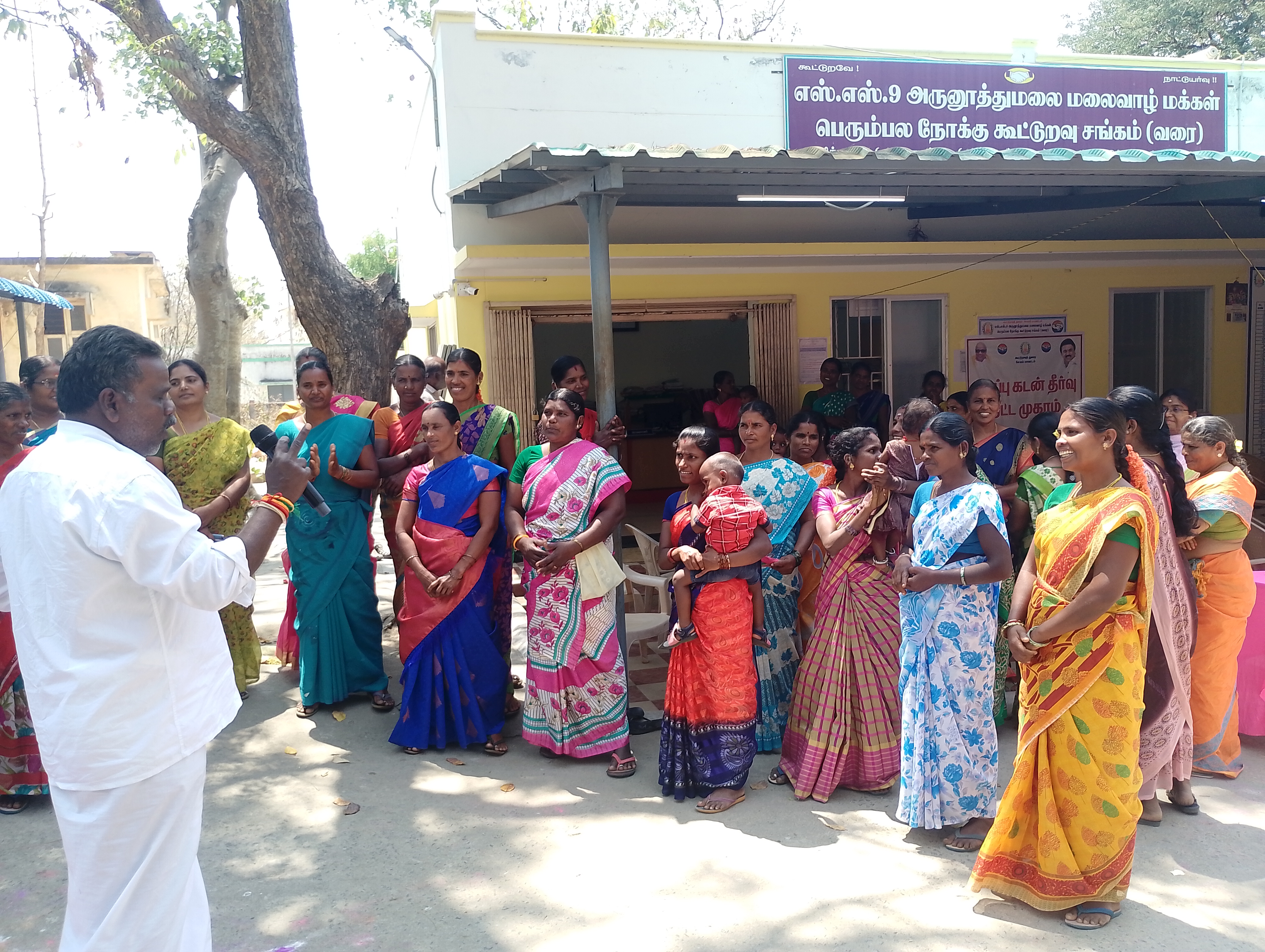
The Service such as forming 350 SHG groups to provided micro credit services to empower the women by covering the 4680 families. All the target members have been imparted training on organization, accounts and entrepreneurship. After which the groups started to lend money to the members at a low interest for agricultural and other purposes. The members repay the loan in due - time. The members, who were previously severely affected by money lenders, are now able to get the loan from their own savings at a very low interest and use it for agricultural and other purposes including marriages, medical expenses housing, Farm equipment’s, education etc. NIWAD has facilitated in getting bank loans for various micro enterprises for SHG members to earn their livelihoods. The groups are effectively brought under an insurance scheme exclusively designed for the rural and urban poor.
In addition to 600 joint liability groups formed by covering 6000 and formed 150 farmers interest groups by covering 3000 small and marginal farmers to improve their well-being through innovative farming practices. As result of that the crop production increased and farmers are able to purchase the agricultural input in reasonable rate and sold their products directly to retailers and wholesalers without middle man involvement. Last one-decade origination provided financial assistance to 13680 families in the tune of 21.16 Cr through formal banking services.
NIWAD Journey
| Program Name | Description |
| 2005 | Trust Registration Under Indian Trust Act |
| 2006 | Received 12A, 80 G, form State Government |
| 2008 | Received FCRA from Ministry of External affairs. |
| 2009 | Best Social worker Award given to Managing Trustee of NIWAD for District consultant in ATMA scheme by District Agricultural management Salem. |
| 2010 | Selected One of the members in VFC Council in Salem District. |
| 2014 | Champions award for Promoting 300 SHG with 4500 members to Managing Trustee of NIWAD Trust by PUDUVALVU SCHEME. |
| 2016 | Best Sanitation Ambassador Award for constructing 3213 IHHL in Rural and 1017 in Urban in Salem District given Managing Trustee of NIWAD by DRDA - SBM Scheme – Salem. |
| 2018 | Award for Covering 5800 Small and marginal women farmers in Women empowerment & Farming Sector to Founder of NIWAD by Ministry of Rural Development and panchayth Raj In Salem district. |
| 2019 | Champions award for promotion of 2000 JLG with 10000 beneficiaries to Managing Trustee of NIWAD by Bank of Baroda, Salem. |
| 2020 | Champions award for promotion of 1500 JLG with 7500 beneficiaries to Managing Trustee of NIWAD by Bank of Baroda, Salem. |
| 2021 | Appointed as Mentor for Tribal interventions under Ministry of Tribal Welfare Government of India |
| 2023 | Received CSR certificate from Ministry of corporate affairs |
VISION
" Sustainable livelihood for marginalized community”
MISSION
“Empower underprivileged community to thrive in their livelihoods”
“Promoting resilience farming to ensure shared prosperity."
“Empower tribal communities to promote sustainable forest conservation practices.”
VALUES:
Equality
Ensuring
equal opportunities for all farmers, regardless of their social, economic, or
cultural backgrounds.
Innovation
Pioneering
sustainable and practical solutions that drive transformation in agriculture
and rural livelihoods.
Transparency
Upholding
openness and clarity in all actions and communications, thereby fostering
trust, credibility, and accountability.
Networking and Collaboration
Building
strategic partnerships and collaborations that enhance organizational impact,
enable resource sharing, and strengthen collective efforts toward achieving
common goals.
Self-Regulation
Emphasizing
ethical conduct, accountability, and integrity through self-monitoring and
transparent operations to ensure credibility and long-term sustainability.
About founder:
As the Chairman of NIWAD TRUST, it is with great humility and dedication that I extend my heartfelt gratitude to all our supporters and partners. Together, we are committed to serving and supporting the most vulnerable communities in northern districts of Tamil Nadu, including women, children, small and marginal farmers, and vulnerable tribes.Our mission is to empower these communities through education, healthcare, sustainable farming practices, and socio-economic development initiatives. With your continued support, we can make a meaningful difference in the lives of those who need it most, creating a brighter and more equitable future for all. Thank you for your unwavering support and belief in our cause
| S.no | Requirements | Numbers As on March 2029 |
| 1 | No of Districts | 3 |
| 2 | No of Blocks | 5 |
| 3 | No of Panchayats | 25 |
| 4 | No of Villages | 64 |
| 5 | Farmers Interest Group | 480 |
| 6 | Micro Credit groups | 365 |
| 7 | Farmers Producer organization Farm based Non-Farm based | 4 |
| 8 | No of Retail outlet shops | 1 |
| 9 | No of members (SHG/FIG) | 5725 |
| 10 | Handloom weaver’s groups and Members | 100 members |
| 11 | Credit support to target groups -amount | 11 Cr |
| 12 | Dairy unit – Collection centers | 5 |
| 13 | Goat rearing unit | 3 |
| 14 | Knowledge Resource Centre | 1 |
| 15 | Agri Tool Bank/ Customer hiring center | 1 |
| 16 | Seed Bank | 1 |
| 17 | Multipurpose Skill cum Training Centre for Organization | - |
| 18 | No of infrastructure create in Schools No of building constructed in schools No of schools benefited No of students benefited No of evening remedial centers in function No of students covered No of Model villages (100 % all facilities) No of individual toilets | 5 10 1250 150 |
| 19 | No of training conducted for staff No of members and leaders under gone different training programme No of members covered social security scheme No of members received convergence support | 30 25 5000 3500 |
| 20 | No of members received marketing services for farm and off farm commodities | 2500 |







